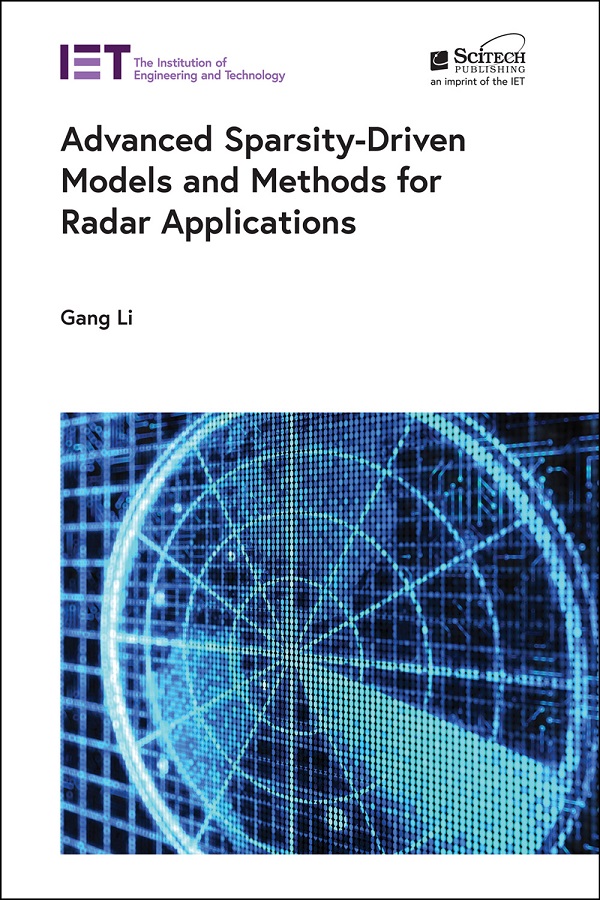- Agricultural Engineering and Technology
- Applied Physics
- Built Environment
- Computing and Networks
- Control, Robotics and Sensors
- Electrical Regulations
- Electromagnetics and Radar
- Energy Engineering
- Healthcare Technologies
- History and Management of Technology
- IET Codes and Guidance
- Manufacturing
- Materials, Circuits and Devices
- Model Forms
- Security
- Telecommunications
- Transportation

Advanced Sparsity-Driven Models and Methods for Radar Applications
by Gang Li
This book introduces advanced sparsity-driven models and methods and their applications in radar tasks such as detection, imaging and classification. Compressed sensing (CS) is one of the most active topics in the signal processing area. By exploiting and promoting the sparsity of the signals of interest, CS offers a new framework for reducing data without compromising the performance of signal recovery, or for enhancing resolution without increasing measurements.
An introductory chapter outlines the fundamentals of sparse signal recovery. The following topics are then systematically and comprehensively addressed: hybrid greedy pursuit algorithms for enhancing radar imaging quality; two-level block sparsity model for multi-channel radar signals; parametric sparse representation for radar imaging with model uncertainty; Poisson-disk sampling for high-resolution and wide-swath SAR imaging; when advanced sparse models meet coarsely quantized radar data; sparsity-aware micro-Doppler analysis for radar target classification; and distributed detection of sparse signals in radar networks via locally most powerful test. Finally, a concluding chapter summarises key points from the preceding chapters and offers concise perspectives.
The book focuses on how to apply the CS-based models and algorithms to solve practical problems in radar, for the radar and signal processing research communities.
About the Author
Gang Li is a Professor at the Department of Electronic Engineering, Tsinghua University, China. His research interests include radar signal processing, remote sensing, distributed signal processing, and information fusion. He has published over 150 papers on these subjects. He is a recipient of the National Science Fund for Distinguished Young Scholars of China and the Royal Society Newton Advanced Fellowship of United Kingdom. He is a Senior Member of the IEEE.
Publication Year: 2020
Pages: 272
ISBN-13: 978-1-83953-075-3
Format: HBK
